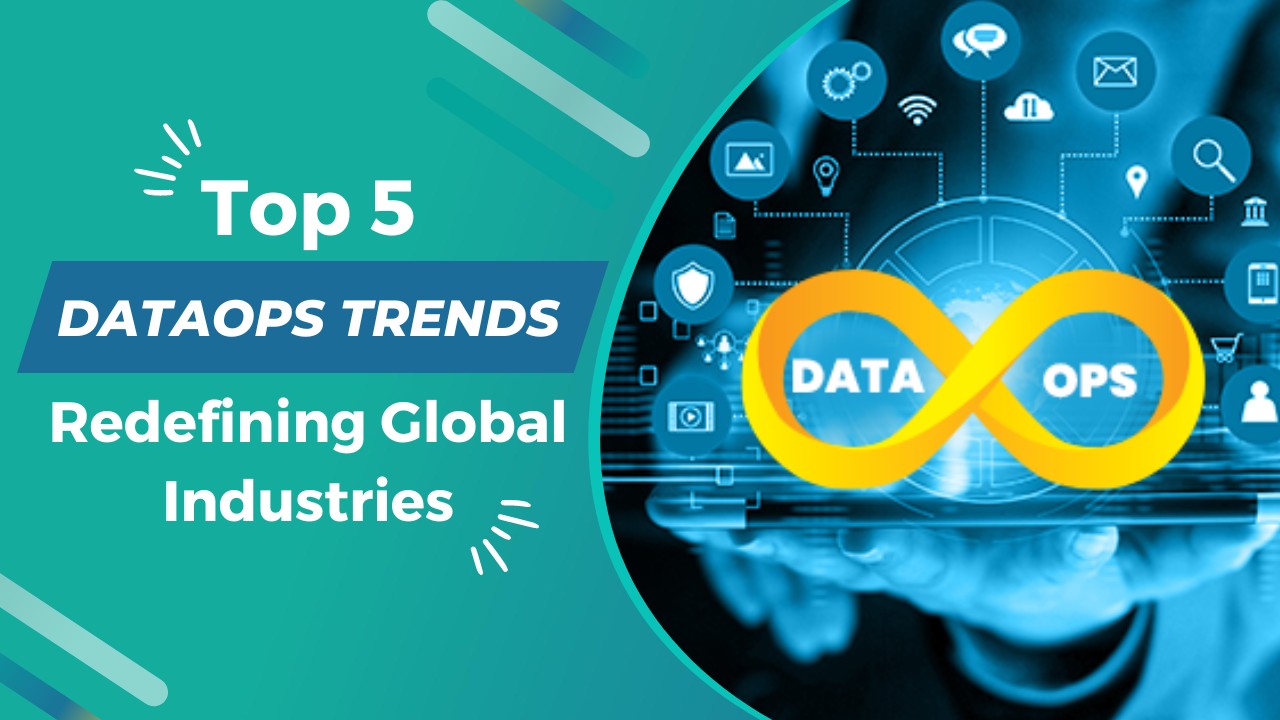Over the last decade since its introduction, DevOps has grown to become an integral part of many companies.
Enterprises are searching for ways to effectively and efficiently use that data to generate value for the business while accumulating at increasing rates and volumes. DataOps, an automated, process-oriented methodology used by analytic and data teams to enhance the quality and shorten the cycle time of data analytics, has emerged as a result of this.
DataOps is a collection of numerous procedures and techniques supported by pertinent technology that uses automation to increase data and insight processing agility. It improves the quality and speed of data, information, and insights and ensures that the workplace culture is constantly improved.
If used effectively, DataOps aims to address some data management issues so that users can access timely and accurate analyses. With the demands of data analysis, scientists, and data-driven applications, a variety of data pipelines have expanded, creating data silos that are disconnected from other pipelines, datasets, and producers. Poor data quality undermines the analytics setup and puts the entire operation at risk. DataOps Managed Services aids in navigating these difficulties and complexity to offer analytics effectively.
Watch out for the 5 major trends listed below that we predict will matter in 2022:
Data fabrics are becoming more widely used to provide complete company 360-degree views.
Data silos have been useful for managing and organising data. But they make it impossible to get a complete picture of all the facts and make good choices for the whole company. Using an enterprise data catalogue, you can combine different data silos, such as IT and OT, into a single data fabric. You can then give a single, 360-degree data perspective of the entire organisation by ingesting, cleansing, curating, and semantically enhancing data.
Data lakehouses are being created as data lakes, and data warehouses merge.
Data warehouses have long been used as stores for structured data from which management choices can be gleaned. In the meantime, data lakes have developed as the sources of large unstructured data that power predictive analytics. With data governance, transaction support, and business intelligence (BI) enablement, a data lakehouse is constructed using the same low-cost storage as a data lake. Still, it is designed similarly to a data warehouse for the best of both worlds. A data lakehouse reduces storage and administrative costs while delivering fast insights.
The management of all organisational data is becoming simpler because of automation and artificial intelligence (AI)
Data is rapidly expanding. Even though there are more important data than ever, managing it is more challenging. To keep up with the continuously expanding amount of data, and organisational data catalogue can use AI to aid in automated discovery. By applying previously discovered patterns to fresh data, machine learning (ML) can, for instance, be used to enrich metadata. AI and automation increase employee productivity by eliminating the need for human labour and lowering the possibility of your company being data-overloaded.
Improve the Communication, Integration & Automation of data flow across your Organization
Calculate your DataOps ROI
The Chief Data Officer (CDO) position is changing from one of data gatekeeper to one of business strategy drivers.
It is now necessary for CDOs to perform tasks other than data governance. They must take the initiative to promote the strategic use of data within their enterprises. Data can give a company a competitive advantage if it is managed strategically. Data quality is particularly crucial because data is so important. The CDO should be in charge of sifting through the “noise” of voluminous, poorly managed data to uncover the most insightful information and ensure that it reaches the appropriate decision-makers. In other words, CDOs are now enabling corporate competitiveness rather than just monitoring data usage.
The foundation of data trust is data quality.
High-quality data must be accurate, fast, and thorough to serve as the foundation for business decision-making. Furthermore, it needs to be believed. Data quality grading and semantic enrichment of data must be combined to produce data that can be trusted. High-quality data that will provide insightful and useful information as a result. Trust is also a positive cycle. Data will earn more trust as it continues to produce value.
Final Words
In 2022 and beyond, there will be an increase in new DataOps trends. Pay attention to these trends to secure your company’s unavoidable success and avoid being caught off guard by emerging technologies. Talk to an expert to explore to enhance your data infrastructure while achieving new heights of data efficiently in order to get ready for these developments.








